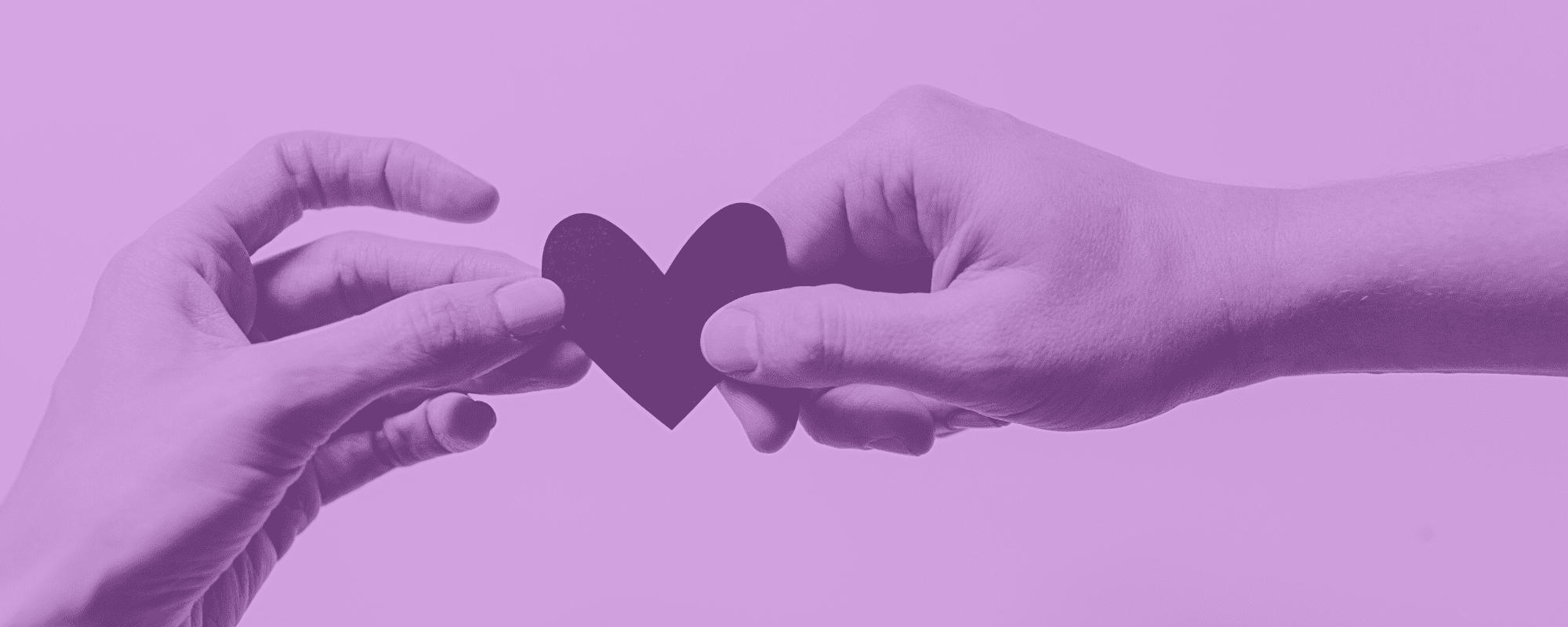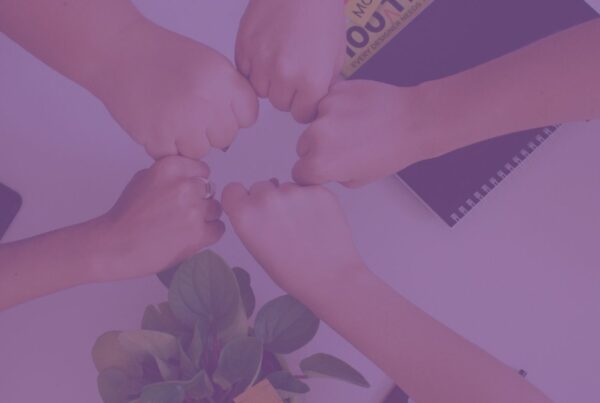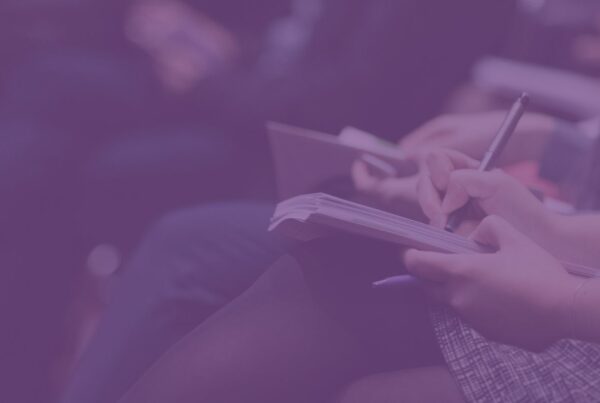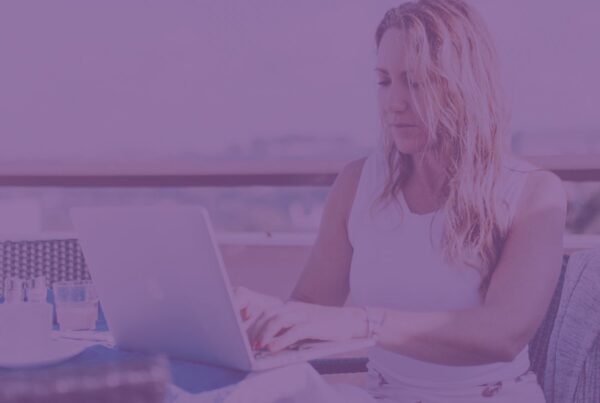In today’s episode of #EventIcons, we fix our eyes on the future and talk about post-COVID events. But let’s not leap headlong into how things used to be. After all, we’ve all grown, learned, and changed so much in the past year. Now, it’s time to put all that knowledge to use! Virtual, hybrid, or in-person – it doesn’t matter what type of an event we are talking about – the fact of the matter is that the attendees’ priorities have dramatically shifted.
Before we even start considering the event tech side of things, for example, we have to go back to basics. The future of events is human-centric! Today’s event icon is the personable Megan Henshall, the global events account manager at Google who got into events because she was “really bad at sales”. She shares how she experienced the pivoting year of 2020 and explains how to adopt a human-centric mindset in events.

Overcoming The Pandemic At Google
The first question Sarah asks Megan is how did the first day of the pandemic look like for her and her team and how did they overcome last year’s challenges. “The first reaction to the onset of the pandemic was parallelization,” says Megan. “Just like everyone else in the industry, we made a hard, fast pivot to digital events across the organization. We supported tens of thousands of digital events of all shapes and kinds across Google and our external communities in 2020.”
She says that 2020 was a fun and exciting year. “It was a lot of up-skilling on our behalf and then also translating those skills to Googlers so that they could work autonomously. We started a lot of education initiatives. We did a digital event learning series that over 6,000 Googlers have tapped into and has actually been shared out with some customer communities as well.”
Human-Centric Events: Because Our Priorities Have Shifted!
Next up, Sarah and Megan talk about what’s so exciting about the human-centric approach to events. “Our industry has been turned on its head. Where do I even start to think about anticipating business needs in a new world with very different human beings? We were already sort of trending towards societal and cultural shifts and turning toward digitization across numerous services and industries. 2020 was a lighter fluid on all of those things,” says Megan.
“All of our priorities have shifted as a result of 2020. And if we look at historical trends after periods of mass trauma or upheaval from a behavioral trend perspective, the period after that lived dramatically differently than those before. We’re now moving into that space,” explains Megan. Human-centric events of the future meet people where they are rather than simply going back to 2019.
“I went on a massive hunt for data on any and all insights around what those trends look like right now. I had many conversations with thought leaders around the industry and consolidated all this information to have informed forecasts. And from those informed forecasts, we’re putting humans at the center of how we’re thinking about what offerings make sense.”
At The Heart Of Human-Centric Events Lie Choices
At their heart, human-centric events are designed around thoughtful, intentional choices. “We offer people choices about how they want to engage. They were robbed of control of nearly every aspect of their lives in 2020. Let’s let them engage in ways that make sense to them,” says Megan. “Give them autonomy over their experience. Some of this stuff we’re solving for is never going to be solved with technology. Not with the budgets that a lot of people have to work with. How do we invite humans to engage with technology differently? How do we build healthy and good techno-social norms where we’re using what we have in new ways that create more meaning?”
Megan then points to where the answers to those questions lie. “We have a lot to learn from thriving online communities that have created authentic digital spaces for online communities. Traditional forums, for example. Reddit is really good at this. And it’s pretty primitive from a technical perspective. There’s so much we can learn from gaming communities as well. They have healthy social norms in their digital environments that people are used to. There are ways of engaging in those communities that are accepted and widely adopted. The mindsets are there. But in our industry, we’re not there yet,” she explains.
Community Is The Commodity, Not Content!
“It’s actually our responsibility to build those social norms in digital spaces and invite people to engage with it in a way that optimizes their experience. Especially for digital venues moving forward, the content is not the commodity, the community is the commodity. Other people that are like-minded and working towards similar goals – that’s the value. So how do you invite people to engage with one another in healthy, authentic, and meaningful ways? If we can get that right, digital events mean something altogether different and the technology doesn’t have to change all that much.”
Sarah wholeheartedly agrees. “The first question that we are often asked at Endless is what platform do I use? What technology is best? Of course, that’s valid and necessary.” But by doing so, they adopt a platform-centric mindset, rather than plan human-centric events.
Let’s Face It: Virtual & In-Person Will Never Be Equitable
Sarah then asks Megan what are some techno-social norms that event planners can really start to incorporate in human-centric events. “We have to do an assessment of what actually can be done well. I’d love to have a glass of wine with you, but doing so virtually versus us meeting at a pub is never going to be equitable. These two experiences will never be the same. We have to be thoughtful about what works well in digital venues versus what never will. We have to start to communicate around that, as opposed to trying to be all things to everyone,” Megan explains.
What’s the recipe for success, then? “If you do build a community well, thriving happens organically,” Megan says. “You provide the tools for them to use, but they run with it on their own.”
She shares the positive experience she had at PCMA Convening Leaders. “I was connected into a micro-community pre-event and it was a small group of people who had similar roles in the industry. We had a daily checkpoint that was scheduled on our behalf where we log in and talk to one about what we saw the day before. I didn’t make it to every catch-up, but a couple of those folks and I have now connected on LinkedIn. Some of us are working towards similar solutions. If things are done thoughtfully, purposefully, and intentionally, some of the stuff will just happen on its own and you get all the credit for it.”
What About Hybrid Events?
The industry might be buzzing about hybrid events and their models, but Megan is a bit skeptical about them. “I’m really trying to find my voice around hybrid because I haven’t seen it done in a way that has knocked my socks off,” she confesses. “We talk about creating equitable experiences across virtual and in-person audiences. And I actually don’t think that’s inside the realm of possibility as technology exists today, which is why I think choice is so important for hybrid. So it’s really two distinct bespoke engagement strategies, and you invite your attendees to plug in where they want to, where it makes the most sense to them.”
“Gathering in digital venues is a heavier cognitive load. It’s actually harder for us physiologically to do this and to do it well because there are no physical cues, there’s no serendipity that happens when you’re face-to-face. So yes, we have to go back to in-person events.” But to plan truly human-centric events, “we have to do a really thoughtful assessment of our priorities and objectives.” While in-person events foster social connection, digital events can provide content to consume at your leisure. “We’re prescribing a couple of different options here and you choose which one makes the most sense.” Even though Megan personally hasn’t been to any outstanding hybrid events just yet, there are many examples to draw inspiration from!
Welcome To The Year Of The Pilot
Megan leaves on a note of optimism. “This is the most exciting time to be in this industry. I think we’re going to make a big comeback. We, as an industry, are the mechanism with which gathering is done well and optimally, whether that’s in a digital or a face-to-face venue. What we’re doing is important because there are a lot of problems to be solved in the world right now. Have fun, experiment! We’re no longer in the year of the pivot, we’re in the year of the pilot! Try all the things, see what sticks, see what resonates with your communities and your audiences, and share it.”
“The best unintended positive side effects of 2020 has been the relationships I’ve built within the industry and out that are helping me think about how to get this right going forward and design for the future. If I can be an asset to any of you in creating solutions that are going to ultimately help all of us, please reach out and collaborate with other people in the industry as well.”












